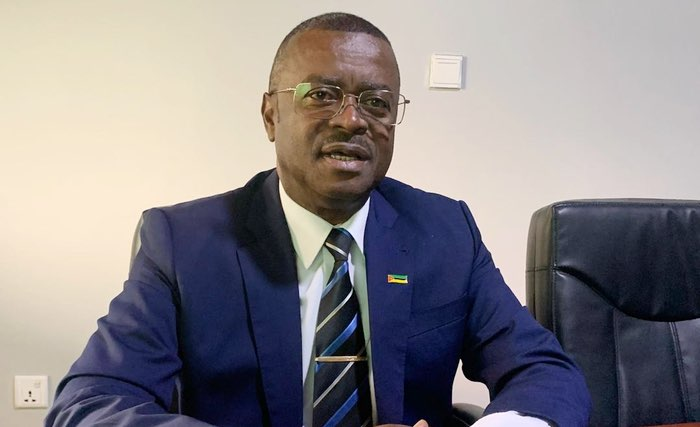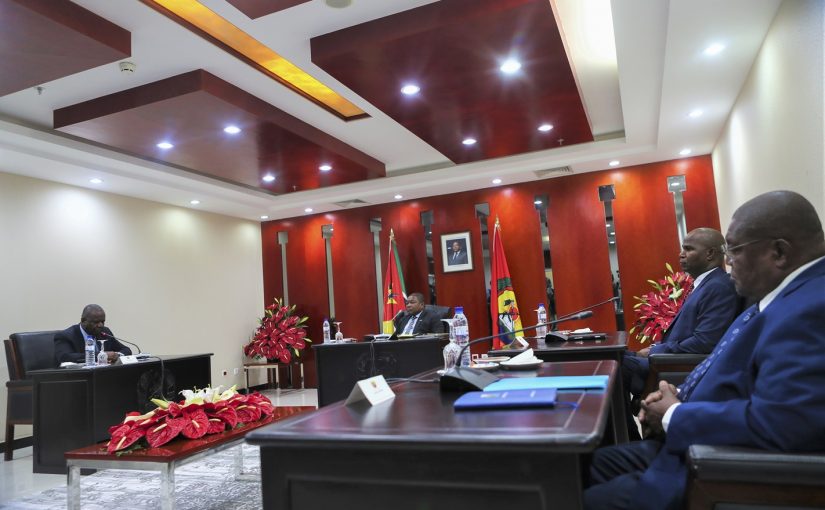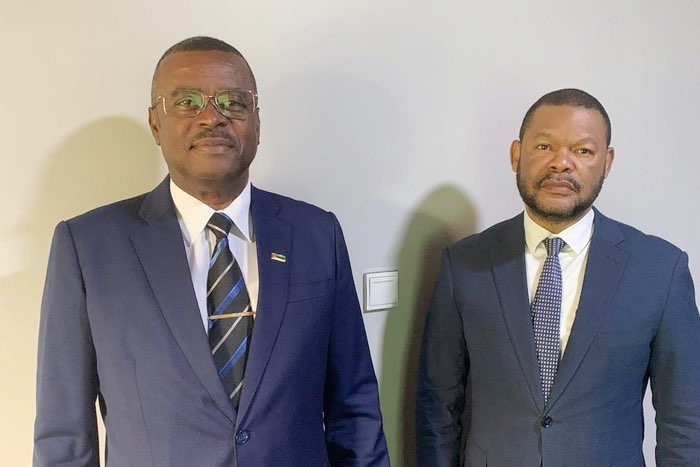
Amade Miquidade, Mozambique’s High Commissioner to Rwanda
As political tensions escalate in Mozambique, President Filipe Nyusi has initiated high-level discussions to resolve the post-election crisis following the October 9 presidential election. The talks involve all four major contenders: Lutero Simango of the Mozambique Democratic Movement (MDM), Ossufo Momade of Renamo, Daniel Chapo from the ruling Frelimo party, and Venâncio Mondlane of the Podemos party.
However, the talks hit an early setback when Mondlane, a key opposition figure, failed to attend and the meeting was postponed. Despite this, President Nyusi emphasized the importance of inclusive dialogue, saying, “Mozambicans have to solve our problems.”
In an exclusive interview with Rwanda News Agency, Amade Miquidade, Mozambique’s High Commissioner to Rwanda expressed optimism about resolving the crisis through dialogue.
The High Commissioner remarked that what has been initiated is to have the country back to normalcy before President Nyusi’s term concludes. He emphasized that President Nyusi is making all efforts to bring everyone to the table to discuss how to advance the country.

Escalating violence and protest
Violent protests broke out in Mozambique after the National Elections Commission declared Daniel Chapo, the candidate for the ruling Mozambique Liberation Front (Frelimo), as the winner.
The opposition parties alleged widespread electoral irregularities and vote-rigging. Tensions intensified following the assassination of Mondlane’s lawyer, Elvino Dias and Podemos official Paulo Guambe, who were gunned down in Maputo.
The assassination raised suspicions of political targeting. Opposition politician Mondlane called for protests, which escalated into violence that included blocking roads, burning tires, throwing stones, and widespread looting. The police were deployed and clashed with demonstrators, resulting in loss of life.
The demonstrations, predominantly led by young people in Maputo, have turned deadly, with an estimated 50 to 60 people killed in the violence. Mondlane, who has been vocal on social media from an undisclosed location outside the country, has called for ongoing demonstrations to challenge the election results.
Push for dialogue and unity
High Commissioner Miquidade has revealed plans for an inclusive unity government to ease tensions. “We have experience in dialogue between the government and opposition parties,” Miquidade said. “This is the approach we are taking while awaiting the Constitutional Court’s final verdict in mid-December.”
He underscored the critical role of Mondlane in the peace process: “He should be there, and the president is urging his participation.”

The major contenders in the elections while meeting President Nyusi also insisted on the participation of Mondlane, as the main party who called for the protests.
Mozambique’s political instability is set against a backdrop of broader national challenges, particularly in Cabo Delgado province, which has endured a violent Islamist insurgency since 2017. The region’s conflict hinges on the significant mineral and hydrocarbon discoveries and has drawn international attention.
Rwanda has deployed troops to Cabo Delgado under a bilateral security agreement to support Mozambican forces incombating insurgents. Despite these efforts, the ongoing post-election turmoil adds another layer of complexity to Mozambique’s struggle for peace and stability.
With dialogue initiatives now underway, the country seeks to find a peaceful resolution to its post-election crisis.
Miquidade said that the discussions seek a peaceful solution like that of Rwanda in forming an inclusive and unity government that can stabilize the country.
The High Commissioner underlined that Mozambique aspires to become a developed country because it is already a mineral-rich country. He added that they are a diversified country with different religions and ethnic groups, where communities live side by side peacefully.
Mozambique has been ruled by Ferlimo since the country gained independence in 1975 from Portugal. Founded in 1962 as a democratic socialist movement, Frelimo led the fight for independence and has remained dominant in the nation’s political landscape for nearly five decades.
